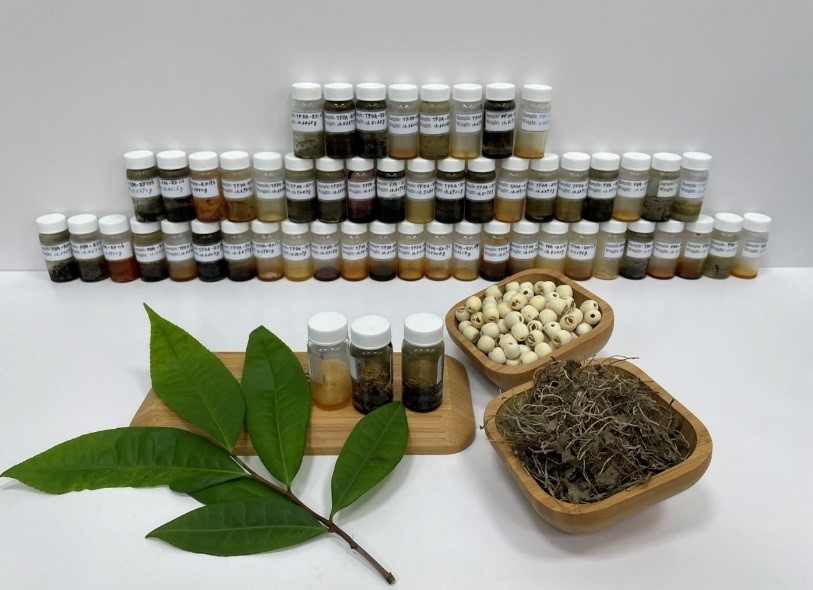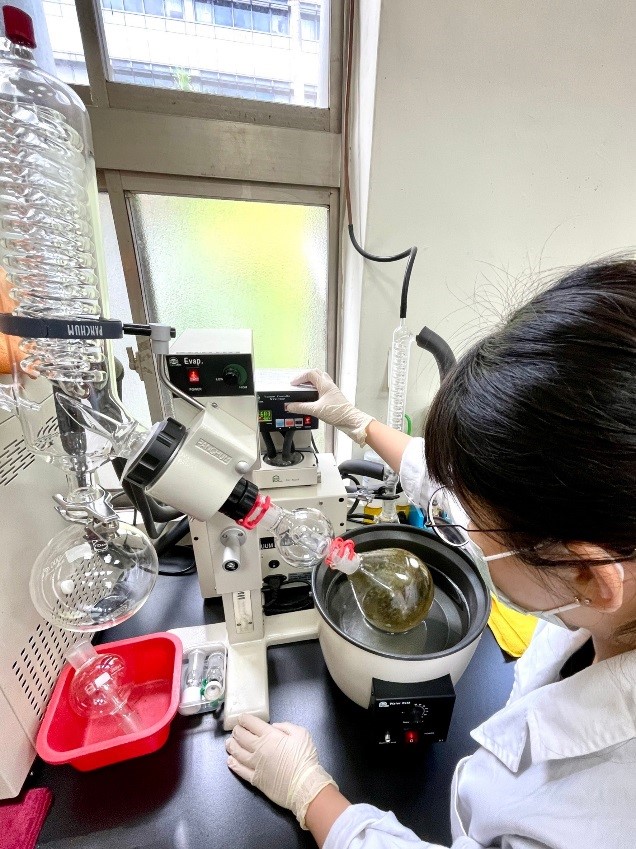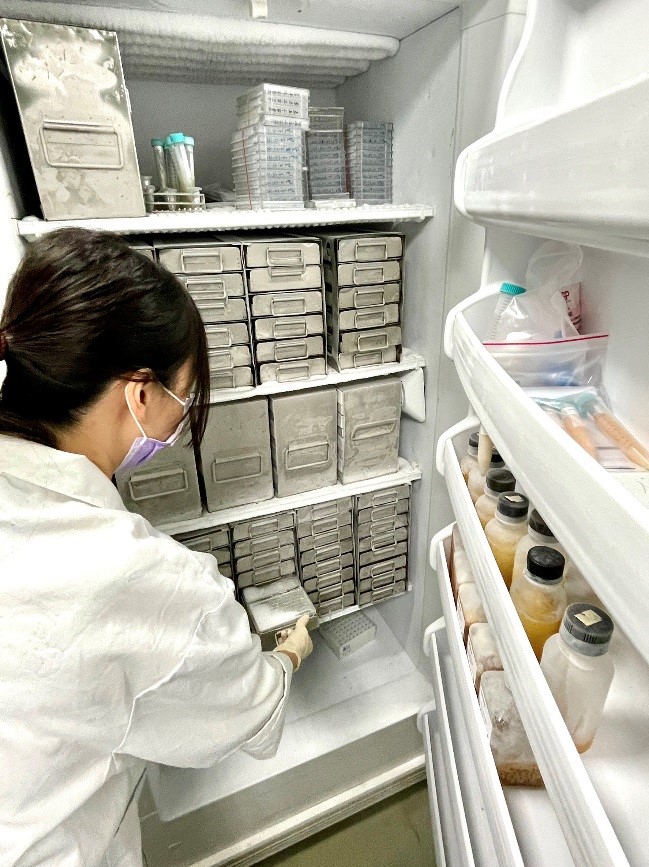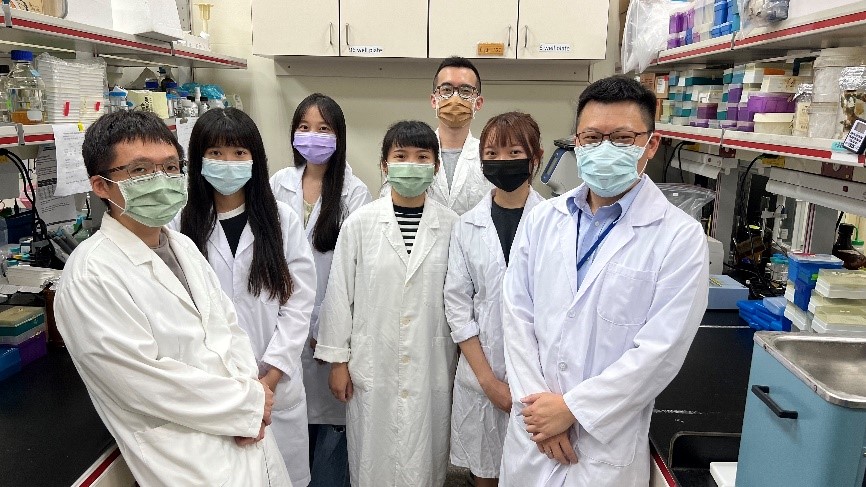高醫大天然物篩選中心攜手昱星生技 篩出抗新冠可食用植物萃取物
高醫大天然物篩選中心攜手昱星生技 篩出抗新冠可食用植物萃取物
高雄醫學大學天然物藥庫暨高通量篩選核心設施與昱星生技研發團隊由可食用之植物庫中開發出一個組合配方,能有效阻擋新冠病毒進入細胞,未來可望繼續發展成抗病毒藥物。
高醫大「天然物藥庫暨高通量篩選核心設施(簡稱天然物篩選中心)」納入了高醫大藥學系研究團隊所收集的台灣本土植物庫,也與目前世界上最大的熱帶活體植物保存中心―辜嚴倬雲植物保種中心合作,製備了上千種獨特的植物萃取物,提供國內學術及產業單位申請使用,進行新藥開發。另外也根據食藥署「可供食品使用原料清單」建置了「可供食品原料使用植物萃取物庫」。這個看似不起眼的收集卻可能是開發新藥、輔助治療方法以及健康補給品的絕佳來源。高醫大天然物篩選中心的主持人顏嘉宏副教授指出,一般認為這些可供食品使用或可食用的植物太平常了,但是在經過適當的萃取濃縮之後,發現數種植物的萃取物在多種測試平台中,表現出相當優異的生物活性。由於這些植物材料原本就能夠作為食品原料使用,因此在後續的藥物或產品開發過程中有助於降低所需的成本與風險,縮短開發時程。這個植物萃取物庫目前已開放給產、學界的研究人員申請使用,並與國內外學界、業界合作,從寶庫中尋找各種疾病的解方,增進國人健康。昱星生技正是利用該萃取物庫開發出對抗新冠病毒的組合配方。
昱星生技執行長張郁芬博士表示,昱星長期致力於發展超高速細胞影像平台支援藥物及細胞治療開發,疫情爆發後將其部分重心轉向整合病毒相關技術,此次與高醫大天然物篩選中心合作,在可供食品原料使用之植物萃取物中,篩選出山茶、金錢薄荷、蓮之特定部位及其他數種萃取物能有效阻擋新冠病毒進入細胞,對於Omicron變異病毒株的抑制也能達到與抗體藥物相近的效果,未來可望繼續發展成抗病毒藥物。
圖形摘要

山茶、金錢薄荷、蓮等植物經萃取後能有效阻擋新冠病毒進入細胞

高雄醫學大學天然物篩選中心透過減壓濃縮機進行天然物萃取

高雄醫學大學天然物篩選中心製備超過6000種萃取物,植物萃取物庫開放產、學界申請使用

高醫大天然物篩選中心主持人顏嘉宏副教授(右一)及研究團隊
【研究團隊】
新藥開發暨價創研究中心
本校主要研究者之簡介:
核心設施負責人:天然藥物研究所顏嘉宏副教授,主要負責藥庫建置、高通量/高內涵篩選服務與推廣之相關工作。
天然物化學研發團隊:高雄醫學大學在天然物的研究領域已有悠久歷史與成果。本核心的協力研發團隊有藥學系張訓碩教授以及天然藥物研究所張芳榮教授、鄭源斌教授(現轉任職於中山大學海洋生物科技暨資源學系,此部份工作為鄭教授於高醫天然所期間所完成)。
植物樣品提供單位:辜嚴倬雲植物保種中心,執行長為清華大學生科院李家維教授、行政院農業委員會種苗改良繁殖場、女巫藥草園。
本核心設施網址: https://nps.kmu.edu.tw/
研究聯繫Email: chyen@kmu.edu.tw
Collaboration of KMU NPS Core lab and LumiSTAR Biotechnology identified anti-COVID19 formulation from edible plants
Collaboration of KMU NPS Core lab and LumiSTAR Biotechnology identified anti-COVID19 formulation from edible plants
SARS-CoV-2 continues to mutate, and vaccine breakthrough infections are often heard. Is there any new weapon to deal with the virus? Kaohsiung Medical University Natural Product Libraries and High-throughput Screening Core Facility and LumiSTAR Biotechnology R&D Team developed by a formula can effectively block the entry of the SARS-CoV-2 into cells from edible plant extract library, and it is expected to develop into an antiviral drug in the future.
The Kaohsiung Medical University Natural Product Libraries and High-throughput Screening Core Facility (NPS Core) incorporates the Taiwan indigenous plant library collected by the research team of School of Pharmacy of Kaohsiung Medical University. The NPS Core also cooperates with the Dr. Cecilia Koo Botanic Conservation Center (KBCC), which is the largest tropical living plant conservation center in the world, and has prepared thousands of extracts from distinctive plants from KBCC. These plant extract libraries are opened to domestic and international, academic and industrial researcher for drug development. In addition, NPS Core also established TFDA food ingredient reference plant extract library (TFIR) according to the Food and Drug Administration's "List of Raw Materials for Food Use". This seemingly humble collection could be an excellent source for developing new medicines, complementary treatments, and health supplements. Associate Professor Yen, Chia-Hung, the principle investigator of the NPS Core, pointed out that it is generally believed that these plants that can be used for food or food ingredient are too common, however, after proper extraction process, we observed quite excellent biological activities in several bioassays. Since these plant materials can be used as food ingredient, they can help reduce the cost and risk in the subsequent drug or product development process, and shorten the development time. This plant extract library is currently open to researchers in industry and academia, and NPS Core also cooperates with domestic and foreign academia and industry to find solutions for various diseases from this treasure house and to improve the health of people. LumiSTAR Biotechnology is one of the user that used TGIR extract library and develop a formula against the infection of SARS-CoV-2 virus.
Dr. Zhang, Yu-Fen, CEO of LumiSTAR Biotechnology, said that LumiSTAR Biotechnology has long been committed to the development of an ultra-high-speed cell imaging platform to support the development of drugs and cell therapy. After the outbreak, some of its focus has shifted to integrating virus-related technologies. In cooperation with the NPS Core, they identified the extracts of camellia, ground ivy, lotus seeds, and several other extracts from edible plants can effectively prevent SARS-CoV-2 virus from entering cells. More importantly, the inhibitory effect of the combination of these extracts on SARS-CoV-2 Omicron variant is as effective as antibody drugs. The formula holds great potential for developing into antiviral drugs in the future.
Graphical Abstract

Camellia, mint, lotus seed and other plant extracts can effectively prevent SARS-CoV-2 virus from entering cells

Extract was concentrated under reduced pressure in a rotary evaporator

NPS Core has prepared more than 6,000 extracts, and the plant extract libraries are open for industrial and academic researchers.

The principle investigator Associate Professor Yen, Chia-Hung (first from the right) and members of NPS Core
Research Team Members:
Drug Development and Value Creation Research Center
Main researcher Intro.
PI of NPS Core: Chia-Hung Yen, (Associate Professor, Graduate Institute of Natural Products) who responsible for the management, construction and maintenance of natural product libraries and high-throughput/high content screening services.
Natural product chemistry teams: KMU has long and rich experience on natural product research. Thus, we have strong supported labs led by Prof. Hsun-Shuo Chang at School of Pharmacy, and Prof. Fang-Rong Chang and Prof. Yuan-Bin Cheng at Graduate Institute of Natural Products. (Prof. Yuan-Bin Cheng currently teaches at Department of Marine Biotechnology and Resources, National Sun Yat-Sen University. Extracts preparation for libraries construction was carried out by Prof Cheng’s lab in KMU)
Plant material supporting team: Dr. Cecilia Koo Botanic Conservation Center of which Prof. Chia-Wei Li at Institute of Molecular and Cellular Biology, National Tsing Hua University is the CEO; Seed Improvement and Propagation Station; and The Witches Herb Garden.
Website of NPS Core: https://nps.kmu.edu.tw/
E-mail address of CH Yen:chyen@kmu.edu.tw




